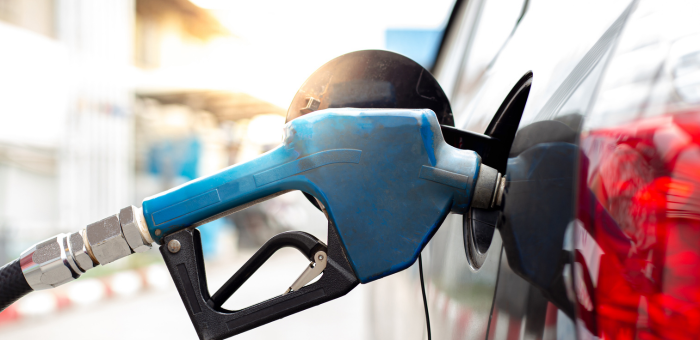Over 200 players defend efficient and pragmatic decarbonisation of transport with biomethane fuel.

Achieving carbon neutrality and moving away from dependence on fossil fuels is an urgent necessity. However, we cannot limit our options to promising technologies but which are not yet sufficiently mature and remain costly for our public finances, at a critical moment for the European economy.
By eliminating biofuels, including biomethane, in favour of electricity and hydrogen, Europe is jeopardising the ecological transition in road transport
On 14 February, the European Commission published its proposal for a CO2 regulation for heavy goods and passenger vehicles. By 2030 for buses and 2040 for trucks and coaches, only electric and hydrogen technologies would be allowed to renew these vehicles.
Heavy transport is a vital sector for the proper functioning of the internal market and for everyone's daily lives. An appropriate regulatory framework must support the development of clean mobility offering transport professionals a choice of different technologies and fuels, adapted to their reality. Decarbonisation is an immediate challenge and all options that can have a rapid impact must be implemented, ambitiously and pragmatically.
Alternative solutions exist and are available today to make a concrete economic and environmental contribution to the abandonment of fossil fuels.
The lack of technological neutrality and fuel life-cycle analysis undermines the achievement of our climate objectives.
The value of electric and hydrogen solutions is undeniable provided that the energy used is available, of renewable origin and with low carbon content.
Everyone understands the importance of considering the carbon impact of energy over their entire life cycle. This is not the choice of the European Commission, which adopts a "tailpipe only" calculation approach. Thus, it does not distinguish between renewable and coal-fired electricity; and it does not differentiate between low-carbon hydrogen and its high-carbon version.
Analysed on a life-cycle basis, vehicles running on biomethane (BioNGV) generate on average 80% less CO2 emissions than diesel vehicles classified as "Euro 6".
Studies carried out by IFP Energies Nouvelles (IFPEN) and Carbon 4, respectively in 2019 and 2020, show that vehicles running on BioNGV have a carbon footprint comparable to that of electric vehicles in France.
Made-in-France BioNGV contributes to our energy sovereignty.
So-called "zero emission" tailpipe electric and hydrogen technologies rely on critical raw materials, largely imported from outside the EU. They are therefore exposed to the constraints and vulnerability of extraction, supply chains and market players associated with these raw materials. Moving from dependence on fossil energy to dependence on imports of rare earths, metals and critical components, whose extraction often evades our environmental standards, will not increase the competitiveness of the EU economy and could even undermine it. The manufacture of biomethane vehicles is much less exposed to these constraints. The technology and supply chain are mature and “Made in the EU” with a variety of European suppliers such as Iveco, Scania and Volvo, with some production lines in France.
Already mature in Europe, biomethane supports the development of local circular economies as it is produced from organic residues and waste produced locally. It thus makes a concrete contribution to Europe's energy independence. In addition, the European Commission has set a target of 350 TWh for the production of biomethane for 2030. By this date, the gas industry expects to produce 60 TWh of renewable gas in France and for mobility; the AFGNV's ambition is to reach 100% renewable gas by 2033 (26% by 2022).
Biomethane already meets the technical and practical challenges of users.
Transporters and users warn of the practical obstacles that jeopardise a fair and balanced ecological transition. The overall operational efficiency of a fleet and the service it provides is paramount: payload, refuelling times and range are parameters that have a considerable impact on route planning and driver management. As a result, some road transport uses will remain difficult to electrify. The first alternative in the energy mix, BioNGV, meets 90% of transport needs. It is already popular by many players: in 2022, one in two buses, one coach in four, and 5% of heavy trucks were registered in France for BioNGV. To do without it would be unreasonable.
Finally, this technology can be based on a dense refuelling network already in place, with over 600 public and private stations in service and investment driven by private players (gas and oil companies, integrators, energy unions, farmers (AAMF) and so forth).
There is an urgent need to remove European barriers to the use of biomethane as a fuel.
At a time when the regulation on ending light combustion vehicles in 2035 is being reconsidered, let's give mobility stakeholders all the resources they need to decarbonise transport today!
We, economic actors, employers' and professional organisations, local authorities and political figures of all stripes, environmental associations and organisations, call in the coming weeks to:
Respect the principle of technological neutrality to take advantage of all decarbonisation solutions for transport, by integrating targets for the incorporation of renewable fuels as defined by the RED directive;
Work towards the phase-out of fossil fuels by taking advantage of all renewable alternatives;
Ensure the competitiveness of BioNGV through appropriate support.
Over 200 stakeholders co-signed this declaration, including federations, transporters and shippers. Find the list HERE
Full article -> https://www.afgnv.org/plus-de-200-acteurs-defendent-une-decarbonation-efficace-et-pragmatique-du-transport-avec-le-biomethane-carburant/
Source: AFGNV